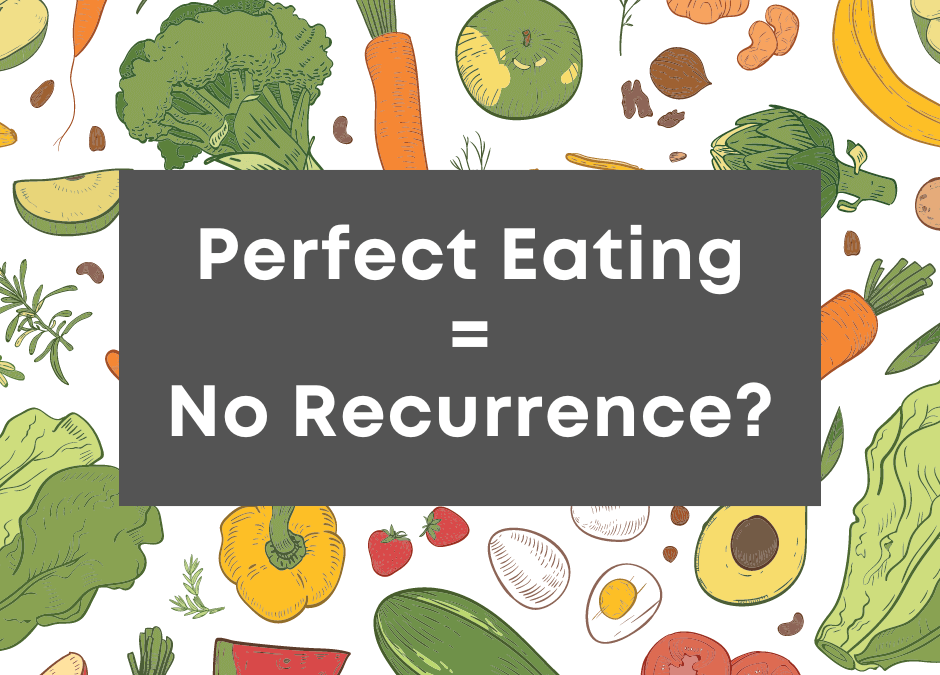“It’s exhausting trying to eat perfectly all the time!”
On a recent coaching call, one of my client’s spoke in-depth about how striving for perfection in her eating left her worn out and forever struggling to “do the right thing”.
I hear this often.
Eating “perfectly” is a goal for so many post-treatment survivors for one reason.
Perfect eating = no recurrence.
Unfortunately, that’s not the case.
A couple of reasons, but before I dive into that, please remember this: no one (including me, a survivor AND dietitian) eats “perfectly” 100% of the time.
First of all, if you and I were having this conversation IRL I would ask you, “What does PERFECT eating look like for you?”
I’m guessing your response would be something so unrealistic and unattainable that the pursuit of your vision of perfection would wring every single ounce of joy from your day.
And that’s not okay.
Second of all, science doesn’t support any one PERFECT way of eating to eliminate or reduce the risk of recurrence. There’s plenty of research suggesting that eating foods containing fiber, consuming soy foods, eating less saturated fat, aiming for a plant-based diet and limiting alcohol are supportive of healthy survivorship and potentially improved survival, but there’s no indication that PERFECTION is the ultimate goal nor answer.
That said, eating as well as you can, as often as you can is a sane approach I regularly recommend to my clients.
As I’m fond of saying, “When you eat for BREAST health, you support your overall BEST health!”
Now, who’s ready to let go of perfection and opt for “good”, as in. . .good-tasting, satisfying foods that make you FEEL good?!
___________________________________________________________
Thanks for reading my blog post! Inspired and/or enlightened by what you read? Be sure to subscribe so you never miss a new post.
Subscribe by CLICKING HERE to get your FREE copy of The Five Foods Survivors Should Eat
CLICK THIS LINK and watch my 2-minute Peaceful Plate program video!
Follow me on Instagram @hormone.breastcancer.dietitian
This information is for educational purposes only and is not intended as medical advice. Please consult your dietitian or doctor for guidance specific to your needs.
___________________________________________________________

